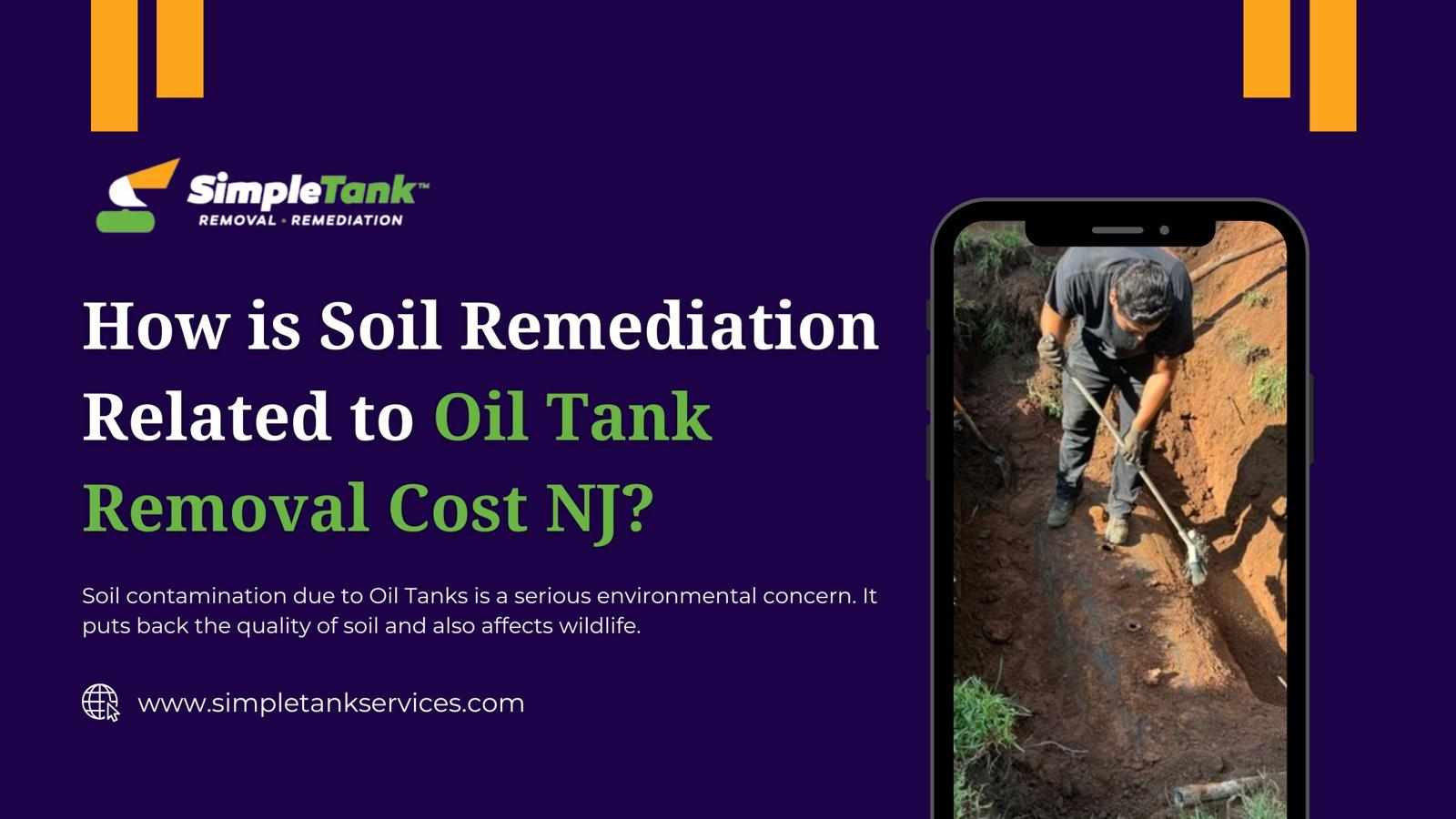Soil contamination due to Oil Tanks is a serious environmental concern. It puts back the quality of soil and also affects wildlife.
To tackle this and prevent further deterioration the Oil Tank needs to be removed. Oil Tank Remediation NJ requires proper steps and necessary professionals to work to prevent any further damage.

Depending on the extent of the damage and difficulty of extraction there is a significant cost involved. So what are the factors of Oil Tank Removal Cost NJ? Let’s find out.
Is Soil Remediation Related to Oil Tank Removal Cost NJ?
Extent of Contamination
The most important factor is the level of contamination and the area affected by it.
If it is a small region or whether the Oil Leak has spread to the levels that it is affecting groundwater. Older tanks might contribute to larger leaks and their removal is a part of the Underground Oil Tank Removal NJ process.
The type of petroleum product and the soil in which the leak happened is also a big factor as to how fast the leak spreads.
Testing and Assessment Fees
The removal of the tank is one process, but to assess if there was any contamination soil testing is required.
This involves some cost in the form of testing and assessment fees. The process includes proper lab testing of the samples, as well as groundwater testing if required to check for contamination.
Sometimes there is also the requirement of environmental experts to properly assess the situation adding to the overall assessment fees.
Excavation and Disposal Costs
The main contributor of Oil Tank Removal Cost NJ is the cost of excavation and disposal of the contaminated oil.
The price depends significantly on the size of the tank, large tanks require different equipment than smaller, standard tanks. There is also transportation involved as the contaminated soil needs to be disposed of properly.
There is also the additional fee of using disposal facilities. Disposal of Hazardous wastes costs more than your normal waste, and the process should be planned accordingly.
Regulatory Compliance Requirements
Most government organizations are extremely strict when it comes to soil remediation as it is an important environmental issue.
They have some regulatory compliance terms which must be strictly adhered to. These requirements are in place to protect the environment from contamination.
For example, in New Jersey house owners and contractors require a permit from the state before oil tank removal. This permit is the proof that the removal process complies with local building and environment codes.
Restoration and Site Cleanup
The end step of the extraction is to fill the excavated hole with cleaner material. The target is to return the soil to its more natural, healthier state.
The cost of this process involves compaction, clean fill material and grading to prevent erosion via natural forces. Adding natural grass or laying the sod is nowadays a common practice and adds to the overall cost.
In Closing…
The world and environment is in a very fragile state. It is our responsibility to preserve it to the best of our abilities. Extraction of leaky and old oil tanks is a necessity, if not checked in time can affect the soil and groundwater purity. The process of Soil Remediation is necessary to restore the balance of the environment after the required excavation process. Proper steps to ensure that the soil can return to its natural steps are strictly adhered to. Government agencies ensure these via permits and several regulations. The cost of the whole process along with it is necessary for preserving our environment for the future generations. Contact us, For more information.




Write a comment ...